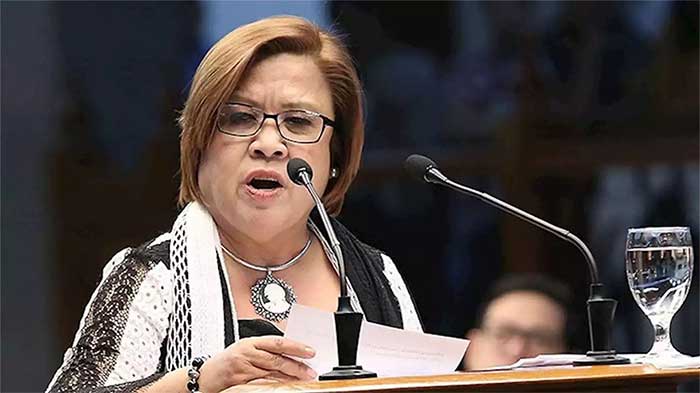
By Gerome Dalipe IV
Former Senator Leila de Lima scored another legal victory.
The Court of Appeals has reversed the Office of the Ombudsman’s dismissal of the administrative complaint that De Lima filed against former Justice Secretary Menardo Guevarra over the allegedly illegal admission of convicted felons as state witnesses in her drug cases.
In a decision dated Nov. 21, the CA Special Seventeenth Division ruled the anti-graft office should not have dismissed outright De Lima’s administrative complaint against Guevarra for gross neglect of duty, grave misconduct, and conduct prejudicial to the best interest of the service.
“There was no valid reason for the Ombudsman to have refused to conduct an investigation on the administrative charges filed by petitioner against the respondent. Its unjustified refusal is contrary to its mandate under the law, and cannot be tolerated,” it said.
In its notice issued in May 2019, the Ombudsman dismissed De Lima’s complaint, saying the law provides for judicial recourse to question the DOJ Secretary for admitting certain individuals to the Witness Protection Program.
The anti-graft office cited the Ombudsman Act or Republic Act 6770, which states that the Ombudsman may not investigate the administrative complaint if it believes the complainant has another judicial remedy, or if the matter is outside its jurisdiction.
The Ombudsman argued there was no showing that the convicted criminals continue to enjoy benefits under the Witness Protection Program after the case was filed in court, and noted that the DOJ had denied the request for certification on this on the ground of confidentiality of the proceedings.
But the CA disagreed, saying the Ombudsman Act does not preclude De Lima from filing an administrative complaint against Guevarra.
The appeals court said the Ombudsman committed grave abuse of discretion when it dismissed the administrative complaint outright based on inapplicable laws and statutes.
Granting that De Lima filed a court case against the DOJ Secretary, the appeals court said that “a complaint to determine respondent’s accountability as a public official may still proceed independently of other actions.”
What the Ombudsman should done was to order Guevarra to respond to De Lima’s complaint, the CA said.
“The proper course of action for the Ombudsman, therefore, was not to wash its hands clean of the administrative cases by dismissing the same outright, but to furnish respondent with a copy of petitioner’s Complaint-Affidavit and its annexes, and order the respondent to file his counter-affidavit and evidence in support of his defense,” it said.
Likewise, the CA also said the outright dismissal of the complaint violated due process, and that it was “perplexed” why the Ombudsman did not even give the DOJ Secretary the opportunity to answer the accusations before dismissing De Lima’s complaint.
Guevarra could have enlightened the Ombudsman as to why the DOJ refused to issue a certification on the status of convicted felons as witnesses, it said.
The CA also said De Lima actually used the wrong remedy in questioning the Ombudsman ruling as she filed a Petition for Review under Rule 43 of the Rules of Court. The proper procedure is to file a petition for certiorari under Rule 65 of the Rules of Court.
Nevertheless, it treated De Lima’s petition as a petition for certiorari under Rule 65, “in accordance with the liberal spirit pervading the Rules of Court and in the interest of substantial justice.”
De Lima was recently released on bail after the court granted his petition for bail merely after about seven years in detention for her drug charges.




















